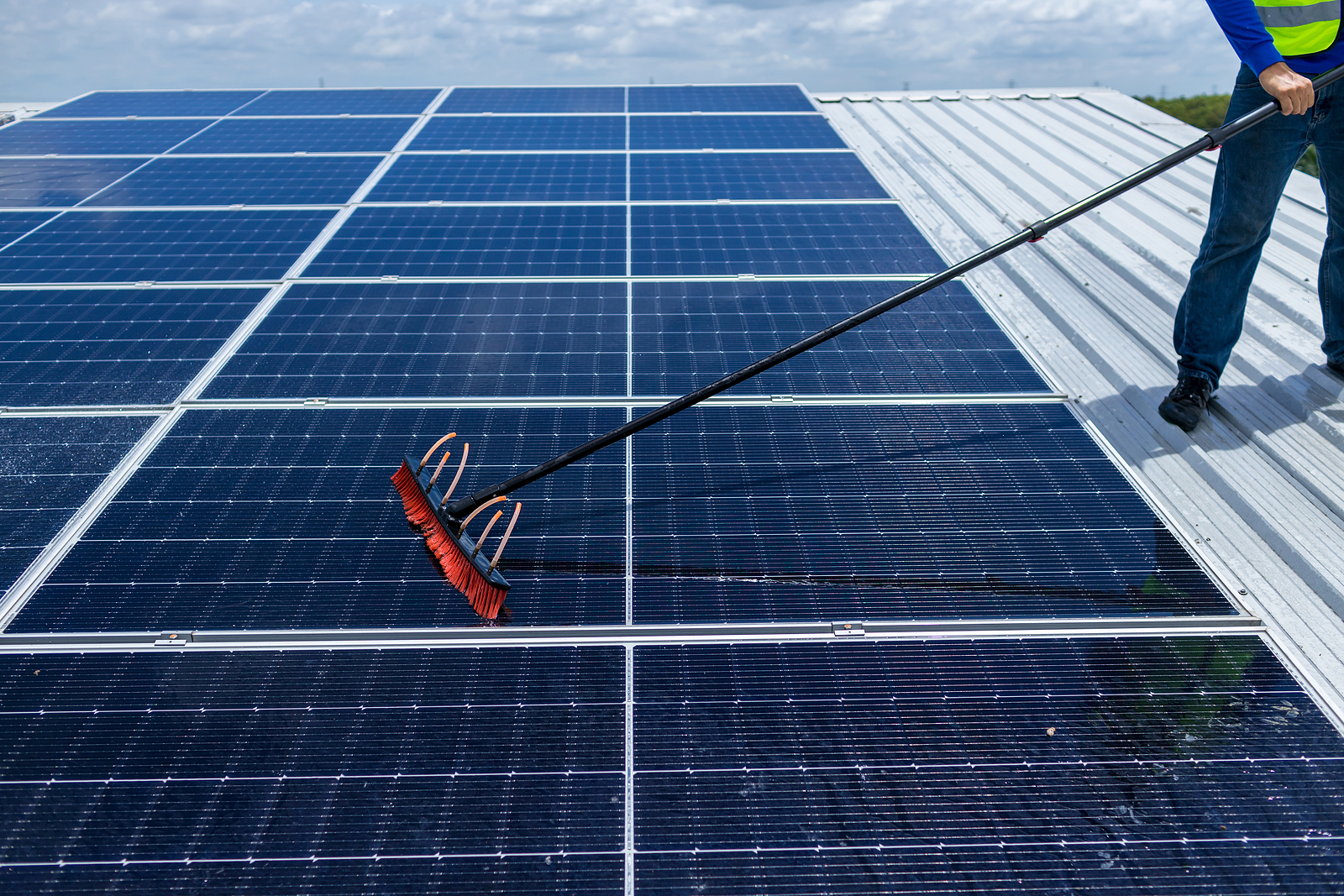Deionized Water and Solar Panel Cleaning
Solar panel glass is generally high quality – maintenance and manufacturing companies have found that using deionized water with a brush allows them to clean solar panels without using hard water or soaps that can leave spots and residue. Deionizer water is water that has all the minerals stripped from it, so when the water dries nothing is left over to leave spots. This makes deionized water a perfect candidate for keeping your solar panels clean and running efficiently.
Shop Deionizers

Cleaning Solar Panels with Hard or Rain Water
Hard water can damage solar panels in time and reduce production and efficiency. Deionized water should be used at least for the final rinse because it will make sure no hardness minerals dry and remain on the panels. Cleaning solar panels with rainwater would be similar to saying rainwater is appropriate to keep your house or car windows clean and spot-free. Like hard water, rainwater has minerals still in the water that can leave residue on your solar panels that can lead to reduced performance. You can clean the panels using regular tap water, and then switch to deionized water for the final rinse only to prolong the life of your deionizer resin.
Reverse-Osmosis vs Deionized
Pure water can be made with the use of either a reverse osmosis (RO) system or a deionizer (DI) unit, but there are several factors that are used to determine which unit is best for your application, location, and usage. In good conditions, the best system to use is a DI. All DI water will give you a spot-free rinse. We stock one, two, and three stage systems in three different sizes, which gives you several options. A RO does not produce ultra-pure water like a deionizer, but it will lower the total dissolved solids (TDS) of your water source. Depending on the source water, and if you’re feeding it with soft water, a RO system might not lower the TDS of your source water into the spot-free range. A RO also produces water at a very slow rate and generates a significant amount of water waste to operate, which may require holding tanks and pumps. Larger operations will run a RO into a deionizer, which lowers the TDS and extends the capacity of the deionizer, resulting in a lower cost per gallon.
Solar Panel Efficiency
Research from Duke University and the Indian Institute of Technology in Gandhinagar indicates solar power performance and efficiency would be much improved with the removal or improvement of airborne dusts and pollutions. Their research shows these two major factors can reduce the efficiency of solar panels by up to 25 percent, and they found that sunlight can be blocked from reaching solar panels with only one or two weeks of debris and buildup. Once clean, they saw solar panel efficiency raise by as much as 50 percent.

Which System is Best for You?
Determining which Deionizer is best for you will vary based on the size of the job, flow rate, space, and water quality. Contact us today and we will work with you to help determine which of our systems fits your needs best.
Questions that help us determine what model is best for you:
- What is your flow rate?
- What is the TDS of your water source or area?
- What will your usage be (Personal or Commercial)?
Difference between a Dual Bed and a Mixed Bed
A dual bed is what 98% of all our auto detailers use because it makes DI water at a lower cost per gallon with greater capacity. To achieve this the resin needs to split into different tanks vs. mixed. The cost difference between a dual bed and mixed bed comes from the level of DI water the system produces. The level of DI water does not matter for spot free applications. A system like this is perfect for spot free but not all manufacturing applications. Some manufacturing applications require ultra pure water that comes at a very high cost, lower capacity, and would provide no benefit when talking about spots.
The mixed bed unit is sized for smaller applications and is what we sell to many residential customers. They do not use the same amount of water as an auto detailer or business so they do not care as much about the cost per gallon. They like the one-tank vs two tanks, and the optional bypass head allows them to easily switch between DI and non-DI water to help conserve the resin.



